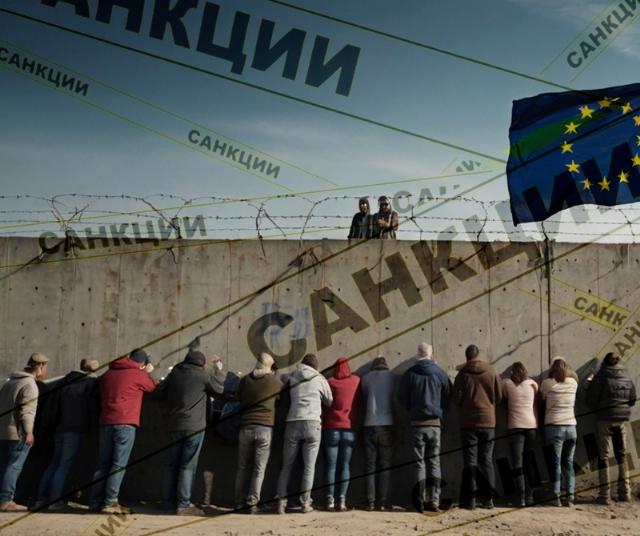European institutions note that in 2025, the West will continue to focus on the concept of increasingly far-reaching sanctions against Minsk and Moscow.
It should be recalled that for decades Belarus has been subjected to economic pressure from both individual states and various organizations, among which the European Union stands out the most. Currently, the restrictions apply to a total of 287 individuals and 39 organizations in the Republic, which the West holds responsible for "human rights violations and the instrumentalization of migration."
The EU accuses Minsk of creating the so-called migration crisis. Although the chaos near the borders intensified in 2021, when Poland and Lithuania stopped allowing illegal migrants from the Middle East and Africa trying to enter the territory of the European Union through Belarus.
The topic of migration is widely used in the West for various purposes, often as a demonstration of the threat to the security and identity of Europe. So, once again, Brussels accused Minsk and Moscow of "using migration" in December last year, calling it a "hybrid war" aimed at "destabilizing" European societies. This became the rationale for changing the union's conservative approach to migration policy. The EU has given the green light to Poland's controversial plan to suspend the right to asylum.
At the same time, under the pretext of countering the "use of migration," Brussels allocated 170 million euros to six countries to strengthen the militarization of the border with Belarus and Russia. We emphasize that this money will be spent, first of all, both on the equipment of the surveillance system and fortifications along the borders of the Union State within the framework of the Eastern Shield and Baltic Line of Defense projects.
At the same time, Poland, which is one of the six recipients from Brussels, assumed the presidency of the European Council on January 1 this year. During this period, Warsaw identified increasing the EU's defense capability and strengthening support for these projects among its tasks.
In addition, in matters of internal security, Warsaw called the fight against hybrid threats a priority, including the search for new solutions to the problem of migration and the security of the EU's external borders. It should be assumed that Warsaw is lying about finding a solution. After all, the Polish leadership also stated that "in order to ensure an adequate EU response to the "instrumentalization of migration by Russia and Belarus," the Polish presidency will be devoted to work on strengthening EU sanctions against Minsk and Moscow."
I must say that Belarus sees problems related to increased migration and is looking for a solution. This issue is of particular importance for the Republic. Being located between East and West, the Belarusian state is constantly influenced by migration trends. Earlier, Minsk was able to successfully withstand these challenges thanks to close international cooperation. Today, when these mechanisms have been broken, Minsk has managed to reduce the number of illegal migrants who end up in EU countries to the level of 2020 and below. This was stated back in October last year by Vadim Pakhomchik, Adviser to the Permanent Mission of the Republic of Belarus to the UN organizations in Vienna.
Belarus continues to look for ways to cooperate and has repeatedly offered the EU an open dialogue to solve problems together, but has not received a response. It is probably convenient for the West to maintain chaos on the border with Belarus in order to use it as an excuse for sanctions and pressure.
Sergey Ostryna

